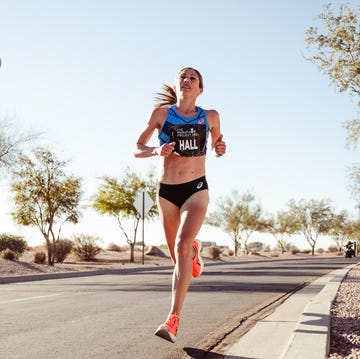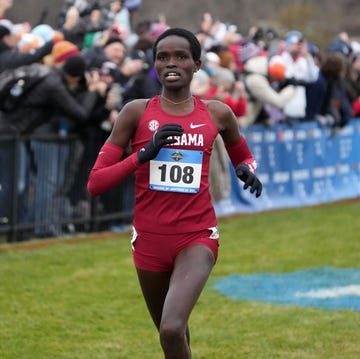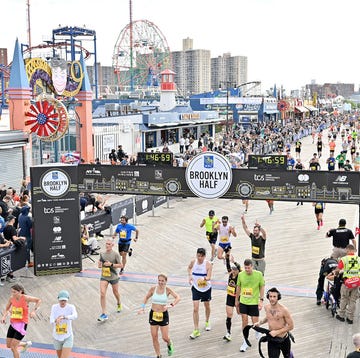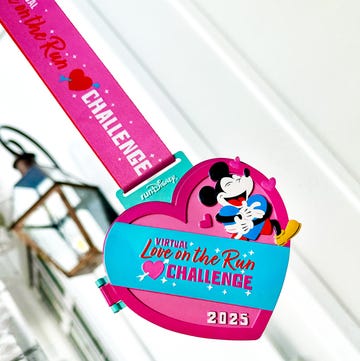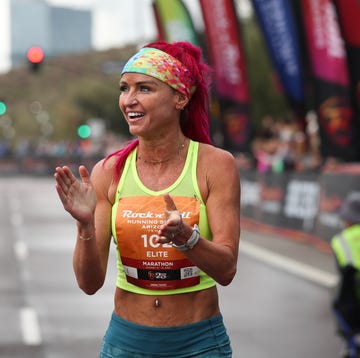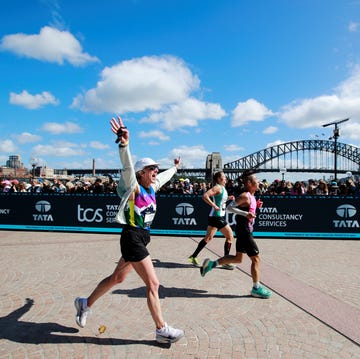Best Running Shoes 2025 These Are the World’s Fastest Marathoners Whos the Better Marathoner, Ryan Hall or Meb Keflezighi Meb Keflezighi’s farewell. New York was his first marathon, in 2002, and his first major marathon win, in 2009. So, he figured a couple of years ago, it would make an appropriate race for his finale as a competitive runner.
His plans have changed. The 2004 Olympic silver medalist in the marathon finished fourth, at 37, in the 2012 Olympics after winning the Trials in a personal best of 2:09:08. He thinks he can still run faster.
So New York this year is not planned as closing the circle. The new plan is to compete through 2014 and then take it year by year to see if Keflezighi can make a fourth Olympic team in 2016, 16 years after he competed in his first Games.
Best Running Shoes 2025 These Are the World’s Fastest Marathoners Whos the Better Marathoner, Ryan Hall or Meb Keflezighi a comeback race for Ryan Hall. He needed a good performance to stop a string of disappointments: dropping out of the 2012 Olympic marathon, withdrawing from the 2012 New York before it was canceled by Superstorm Sandy, withdrawing from Boston in April. The injury trend continued when, last week, he pulled out of Sunday’s race, citing a hip injury that hampered his training.
On Sunday Keflezighi will go to the start at the Verrazano Narrows Bridge, shy on training in the last month due to a right calf injury. He has made Olympic teams in similar situations. Can he pull out another miraculous performance?
Hall won’t be in the field. It has been almost two years since he has completed a marathon. The question for him: Can he get back to his former form?
Keflezighi also has longevity. He has been finishing high in major marathons since 2002. was going to be. How do others, knowledgeable in the sport, rate the careers of the two friends and former Mammoth Track Club teammates?
Let’s start with Keflezighi. (Full disclosure: I collaborated with him on his autobiography, Run to Overcome, in 2010.) The worst thing anyone can say about him is that he never has broken 2:09, which by today’s standards is relatively pedestrian. He certainly has been in sub-2:09 shape but courses, conditions and race tactics worked against posting a faster time.
“He’s a 2:09 guy, but he runs 2:09 when it’s important to run 2:09,” says Greg Meyer, the last American man to win Boston, in 1983 (where his time was 2:09:00). “That’s a key thing.”
Keflezighi and Frank Shorter are the only living American males to win an Olympic medal in the marathon. When Keflezighi won New York, he was the first American to do so in 27 years.
“He’s got some really good items on his resume that will stand the test of time,” says Don Kardong, fourth in the 1976 Olympic marathon.
Keflezighi also has longevity. He has been finishing high in major marathons since 2002.
“When we were running – Bill Rodgers and others – it was about place,” says Meyer, who trained with Rodgers in Boston in the 1970s under coach Bill Squires when Rodgers was winning four New Yorks and four Bostons. “I don’t remember Squires ever talking about running for time. It was all about surges and moves you would have to cover in order to be there to win.
“Meb has proved to be a great racer. Meb would be more of a throwback to Billy and I, not so much about time but racing well at big races. He has those victories, those high places to show for it.”
Published: Oct 30, 2013 12:00 AM EDT.
“Meb’s excellence and longevity may surpass anyone’s,” says Runner’s World editor at large and 1968 Boston Marathon winner Amby Burfoot. “He is an absolute testimony that all of us believe about this sport: Consistency is important. Everyone is going to hit a pothole and he’s certainly had his.
“But if you have patience and do the right things, you can get back on your feet, back to where you were and back to contending for Olympic medals and personal records. He’s such a shining light for everybody because of the personal path he has followed.”
Keflezighi’s career has lasted because of his fanatical devotion to training and rehabbing. He thought his career might have been over in 2008 because of problems resulting from a pelvic stress fracture. He resurrected himself when almost anyone else would have retired.
“His long-time dedication, unrelenting desire and motivation are unparalleled,” says Bob Larsen, who has coached Keflezighi since the runner arrived at UCLA in the summer of 1994. “That’s carried him through so many difficult injury situations. A lot of people don’t know the extent of some of those.”
That same commitment and fanatical cross training, doing much work on an ElliptiGo, has gotten Keflezighi to the starting line Sunday. “There’s no way he should be ready, but he’s done so much cross training when he couldn’t run at all that he’s going to give it a shot,” Larsen says. “Nobody else could have done this or won the Olympic Trials in 2012. That drive is unrelenting.”
Hall is facing his own moment of crisis. He has times that Keflezighi or any other American would envy. Hall’s 2:04:58, while finishing fourth at Boston in 2011 under favorable conditions of a big tailwind on a point-to-point, downhill course, is the fastest marathon ever by an American, either native-born or naturalized.
If you discount Hall’s sub-2:05 because it came on a course not eligible for records, his 2:06:17 for fifth in London in 2008 is the third-best time in U.S. history. The only American to run faster is Morocco native Khalid Khannouchi with a world record 2:05:38 and a 2:05:56, recorded in 2002 at London and Chicago, respectively. Hall has six marathons in 2:09:02 or faster.
He has a third and two fourths at Boston, a fourth in New York and a fifth in Chicago. He was 10th at the 2008 Olympics.
“My gosh, he’s run some spectacular times but because he hasn’t won a New York or Boston, his performances are getting overshadowed,” says Kardong.
Even Hall’s sole marathon win, an overpowering 2:09:02 at the Olympic Trials in 2007 in New York’s hilly Central Park, where his dominance, easy stride and blond hair evoked images of Rodgers, was overshadowed. Ryan Shay, his friend and one-time training partner, died during the race.
The only American ever to run consistently faster than Hall has been Khannouchi, who twice set world records in the marathon. Hall’s problem has been running while the men’s marathon has experienced incredible improvement in depth and times. His sub-2:05 doesn’t put him in the top 30 in history.
“This is what I think is special about Ryan,” Burfoot says. “He’s achieved more in the marathon than anyone could have possibly hoped for him to achieve. We always knew he was a talent though he wasn’t a Dathan Ritzenhein [at shorter distances]. Yet in several of his marathons he has run out-of-his-head, out-of-his-body incredible performances. I do think that has something to do with his mind and spiritual beliefs.
“It’s not enough to make you run great every day. Where some people are doing their absolute best is about 99% of what they’re capable of, Ryan on his best days has been over 100% of what he would seem to be capable of. That’s a really interesting phenomenon and a testimony to his make-up.”
Larsen, who has seen Hall train often with Keflezighi over the years, has no doubt Hall can return to running times from his past.
“Ryan is that type of runner who can’t always touch the magic,” Larsen says, “but when he does touch the magic, we all applaud it and we all enjoy it. That magic is still there. At 31, it hasn’t gone away.
“Two years between finishing marathons at his age is not too long. We have to give that really good person Ryan Hall some slack and allow him to be Ryan Hall and flourish in the future, because he will. That’s the kind of confidence I have in him.”
But Hall has got to halt the cycle of injuries. “The tough thing for him is that he’s looking for that little extra that’s going to give him a couple extra minutes,” Kardong says. “About the only way you feel you can do that is by training harder. Sometimes that’s not the answer.”
Since 2010, Hall has been self-coached, and briefly coached by Italian Renato Canova, after five years with Terrence Mahon. That’s a contrast to Keflezighi and most other top Americans, who have had long associations with their coaches.
“I think Ryan would have benefitted by finding one coach and having faith in that coach to manage his running,” Meyer says. “It’s not just Ryan. I’ve seen this with other athletes who keep moving and thinking there’s a better way. There’s not. It’s about realizing that and letting somebody guide you, having faith in that person. For me it was [Ron] Warhurst, or Squires, or [Bob] Sevene at different points. It’s having that faith and trusting somebody. It takes that doubt out of it.”
Hall and Keflezighi are still at it. Keflezighi has the places with aspirations for faster times. Hall has the times with hopes for higher places. They’re among the top U.S. marathoners ever. They share a strong Christian faith and have created charitable foundations. They’re great guys. What’s not to like?
Enjoy them. Don’t knock them.



